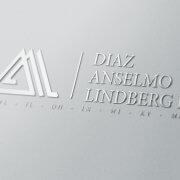REDEMAND NOT NECESSARY EVEN AFTER BANK ACCEPTS PARTIAL PAYMENTS
The Fourth DCA reversed a judgment entered in favor of two mortgagors in a Broward County foreclosure action brought by Bank of New York Mellon (“the Bank”) finding the lower court erred when it concluded the bank failed to satisfy conditions precedent. Bank of New York Mellon, etc. v. Withum, 204 So. 3d 136 (Fla. 4th DCA 2016). In Withum, the mortgagors defaulted on their loan and the Bank sent them a demand letter in compliance with paragraph 22 of their mortgage. After receiving the demand letter, the borrowers sent in three partial payments, but not enough to cure the default. The Bank initiated foreclosure proceedings and the matter proceeded to a bench trial.
The trial court entered judgment in favor of the borrowers finding the bank failed to satisfy the requirements of paragraph 22 of the mortgage because it failed to redemand after accepting the borrowers’ three partial payments. The Bank appealed the judgment. The Fourth DCA noted contract construction was a “pure question of law” and surmised the lower court misinterpreted paragraph 22 of the mortgage. The DCA cited several provisions of the mortgage which clearly provided that if a default was not cured “on or before the date specified in the [demand] notice” the lender could accelerate “without further demand” and may foreclose by filing a lawsuit.
The DCA also pointed out that each time the Bank accepted the borrowers’ partial payments it sent notice to the borrowers which indicated the Bank was not waiving any of its rights under the note and mortgage, including the right to foreclose, by accepting partial payments. The Court noted the language in the partial payment notices was consistent with the mortgage language which also provided the Bank could accept partial payments “insufficient to bring the Loan current, without waiver of any rights…”
The DCA disagreed with the lower court’s conclusion that the three notices following the partial payments were “confusing” and taken together “did not adequately inform Borrowers of the necessary steps to cure.” The DCA explained that the purpose of a demand notice is to inform the borrower of what must be done “to bring the loan out of default.” The Court elaborated that such a notice “need only substantially comply with a mortgage’s condition precedent.” The Court added that the “initial breach letter expressly informed Borrowers that if they sent less than the full amount due, Bank could keep the payment, apply it to the outstanding debt, and still proceed to foreclosure.” This notice was sufficient. The Court concluded there was no dispute that the borrowers remained in constant default since receiving the initial demand letter and that the partial payment notices “could not retroactively alter the sufficiency” of the initial demand notice. The DCA remanded the matter to the trial court to reverse judgment for the borrowers and directed the lower court to enter a judgment of foreclosure for the Bank. The key take-away from this decision is the importance of the language in the demand letter, mortgage and any communications sent to the borrowers. A foreclosure is an action based in contract and the court is required to enforce the terms of the parties’ agreement – as written. As long as consistent, clear language is used in the contract and communications with the borrower, the parties’ respective rights will be protected and enforced.



